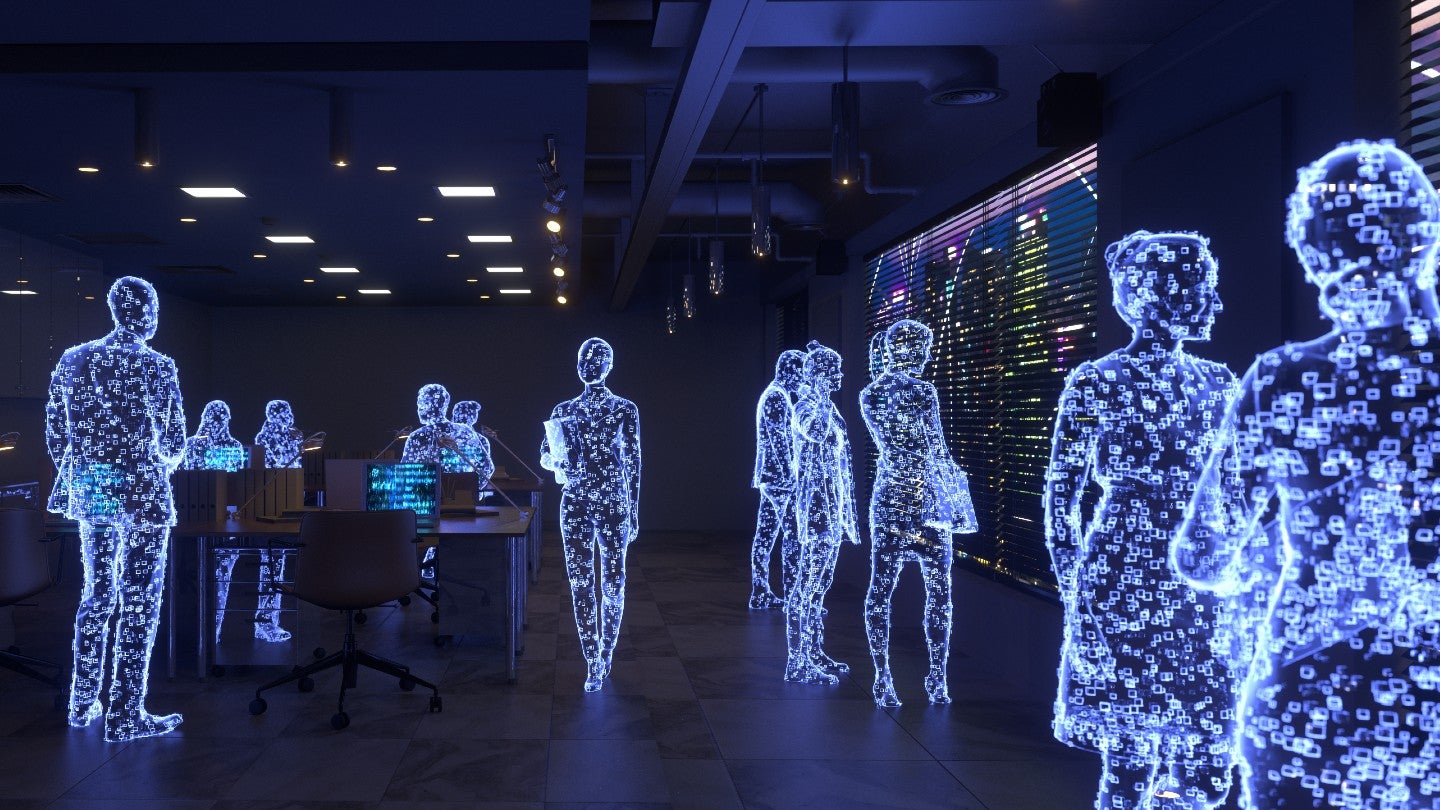
The metaverse economy will be worth $400bn by 2030, up from $48bn in 2022, according to a new report.
The Metaverse – Thematic Intelligence report notes that this growth will unfold despite the current metaverse and crypto winter dampening interest.
Indeed, the metaverse is overwhelmingly the emerging technology among a group of seven of the most significant that is most viewed as being all hype and no substance, a recent GlobalData survey has found.
Nearly two-thirds (59%) of 368 respondents polled across the Verdict network of 30+ business-to-business (B2B) websites reported that they viewed the metaverse – the umbrella term for online 3D virtual words – as all hype. The next nearest technology on the measure at just 19% was augmented reality (AR), via which digital content is overlayed onto the real world.
Metaverse patents and filing mentions
The hype surrounding the metaverse has faded of late, with GlobalData’s patent analytics database indicating that patent filings fell from 16,700 in Q1 2021 to 10,900 in Q3 2023. It is suggested that this decline could be in part a result of companies pivoting their interest and investments towards generative AI.
Still, the metaverse remains high in business considerations, with GlobalData’s filings analytics identifying over 3,000 mentions of the metaverse in 2022 and 3,600 mentions by the end of Q3 2023. This suggests that, while patents have dropped and the initial buzz has passed, the metaverse remains a prominent consideration for businesses.
How well do you really know your competitors?
Access the most comprehensive Company Profiles on the market, powered by GlobalData. Save hours of research. Gain competitive edge.

Thank you!
Your download email will arrive shortly
Not ready to buy yet? Download a free sample
We are confident about the unique quality of our Company Profiles. However, we want you to make the most beneficial decision for your business, so we offer a free sample that you can download by submitting the below form
By GlobalDataCommenting on the future of the metaverse, Suneet Muru, Thematic Analyst at GlobalData, said: “User experience will be a crucial factor in ending the metaverse winter. Progress in enabling technologies like augmented reality, virtual reality and cybersecurity will be a trivial pursuit unless companies can translate it into user-friendly interfaces.
This is especially true for the open metaverse where the integration of blockchain and cryptocurrencies has resulted in clunky functionalities. The ice will definitely melt quicker for the enterprise metaverse but it’s still unclear what value it can add beyond the existing array of workplace collaboration tools.”
GlobalData’s report also highlights key trends associated with the metaverse alongside the apparent metaverse winter such as the future of work, digital identity, and data privacy.
How does the metaverse function?
The metaverse can be conceptualised as a shared virtual experience where users can interact in real-time experiences and transactions. Currently, the primary use cases of the metaverse are seen in augmented reality, virtual reality, and digital twins.
GlobalData’s report outlines the structure of the metaverse, explaining the two groups of metaverse contenders: walled gardens and decentralized autonomous organisations (DAOs).
Walled gardens, as the term suggests are closed platforms with all the operations controlled by one company, allowing them complete control of the metaverse platform. Out of the two they currently are dominating the marketing with a large and varied user base. In contrast, DAOs allow network members to decide how the platform will operate, although still young in their development, they have the benefit of being more transparent and safer from regulators. However, they still exist in a legally grey area in various countries and thus can be prone to criminal conduct.
Examples of DAOs identified by GlobalData’s report are The Sandbox, Decentraland, Axie Infinity and Somnium Space. As the metaverse matures, GlobalData’s report indicates that rather than one homogenous platform there will be multiple metaverses operating in tandem.
Perhaps conspicuously, banks such as JP Morgan and HSBC are among the businesses that have shown interest in the metaverse, opening customer lounges for users to socialise and consult with experts.
Of this, Muru added: “Banking companies showed a strong interest in the open metaverse platforms like Decentraland for branding and marketing endeavours last year, but this has largely petered out. The more natural opportunity for banks would be to intermediate transactions, which they already do in walled gardens. This potential will be limited in open platforms, which are plagued by the difficulties faced in the crypto industry such as volatility and a lack of security and regulation.”







